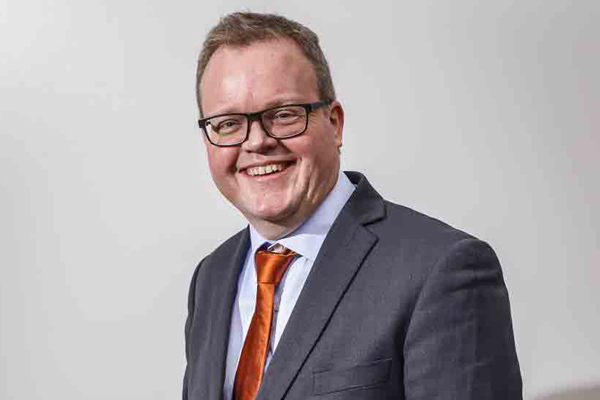
Shipping needs to change focus
Norway, September 14, 2020
By Asbjørn Halsebakke
It’s difficult to break established patterns of behaviour. Once something becomes the norm it is accepted and viewed as “conventional wisdom,” even when it’s not in the slightest bit smart.
And that’s what has happened with shipbuilding.
There’s always, ALWAYS, a focus on capital expenditure (Capex). What will this ship cost? Can we make it any cheaper? How does it compare to what I can get from Yard B? If we can save money, or undercut the competition, it’s surely good for business, yes?
In an industry where the smallest margins are seemingly a matter of (commercial) life and death, the race to the bottom continues to gather pace. But who will be the winners?
Before we address this, let me state for the record that I am not naïve. I understand that shipowners and yards feel a huge financial strain, especially now during this time of global disruption and associated economic pain. If you can save money you do. I mean why wouldn’t you?
Well, maybe because it’ll end up costing more…
Time to reboot
Yards are under pressure to push out vessels as cheaply as possible. This comes from owners, but it also comes as a result of the aforementioned ‘norm.’ This is what they’re meant to do, right? It’s what everyone does. Build quickly, often without having an owner lined up at all, sell quickly and move on to the next project.
But being cheap isn’t the same as delivering value. Savings for owners in Capex can be far, far outstripped by costs in operating expenses (Opex) over a vessel’s lifetime – or even over the first few years of operation. We’ll get on to that shortly.
At present, there’s extreme short-term pressure and that fuels the need for short-term savings. But it’s often bad for everyone – for the yards (forced to slash prices), for the owners (who don’t get the best value solutions) and for society, who simply don’t get the environmental performance and standards they deserve.
And because this is ‘conventional wisdom,’ we keep on making the same mistakes, over and over again, ship after ship after ship.
We need to reboot the system. And green, sustainable solutions should be the first factor we program in.
Common sense switch
I can already hear a couple of virtual groans. “Green! But green technology costs more!”
Unfortunately, that’s usually the case. And that’s why yards don’t tend to offer truly green solutions in their newbuilds, unless specifically pressured to. Which, as yet, doesn’t happen enough.
So, yes, Capex may be more. But what if Opex could be considerably less? Wouldn’t you rather spend $50,000, for example, on a car that cost virtually nothing to run and had a higher resale value than one that was $40,000 and cost you $5,000 a year? And what if that car was simpler and more reliable to own and better for your children, better for the world?
It’s not, or shouldn’t be, a difficult decision.
Unlocking added value
But forget the car. We’re talking about ships, aren’t we? So, let me use my own company as an example.
Yaskawa Environmental Energy / The Switch makes innovative drive train technology that is tried, tested and market-proven. We focus on solutions that create, contain and consume energy responsibly and efficiently. Two of our main offerings are our DC-Hub, which is capable of utilising any electrical energy source, therefore future-proofing vessels, and our permanent magnet machines, which convert mechanical energy to clean, green electrical power. Used together, these help deliver huge efficiency gains on vessels, reducing fuel burn by up to 35 per cent and cutting maintenance costs by between 10 and 20 per cent.
Think of the savings involved in that. By spending a little more in terms of overall project cost, you unlock huge business efficiencies over the vessel’s lifetime – potentially providing return on investment (ROI) after a couple of years – and protect the planet from ton upon ton of greenhouse gas emissions.
Less pollution, less fuel, less maintenance, less cost. What more reason do you need to specify a green solution?
Outstanding position
Owners aren’t doing that ‘en masse’ yet, but they are coming round. And once the demand is there, the yards will meet it. But the yards should move to create that demand, too.
Surely there’s a business opportunity to integrate green technologies, such as The Switch solutions, into their newbuilds, marketing them as responsible and hugely cost-effective assets that will deliver compelling long-term benefits. In a me-too market where everyone is focused on price, why can’t smart yards differentiate themselves as pioneers in value? As partners to owners, looking after their business needs, reputations and the environment, rather than simply suppliers that fulfill orders and forget Opex, moving from one project to the next?
Governments have a role to play, too. By rewarding yards and owners for greener building initiatives, they can provide incentives while positioning their national industry as the shipbuilders of the future, focused on quality, environmental stewardship and value.
There’s no downside to that. It’s the embodiment of positive action.
A smarter way forward
Shipbuilding is a business, and businesses need to make money. My argument is the way to do this – a way that truly benefits all of shipping’s myriad stakeholders – is not by cutting costs, but rather by providing value. This is what smart owners are going to look to in the future, and smart yards need to wake up to a new way of working if we’re ever going to enable a truly sustainable maritime industry.
Call this unconventional if you want, but I believe it is wisdom. If we keep focusing on short-term Capex, we’ll all end up paying in the long term… and nobody wants that. –TradeArabia News Service
About the author
Asbjørn Halsebakke is a Director, Technical Solutions at Marine, Yaskawa Environmental Energy / The Switch








